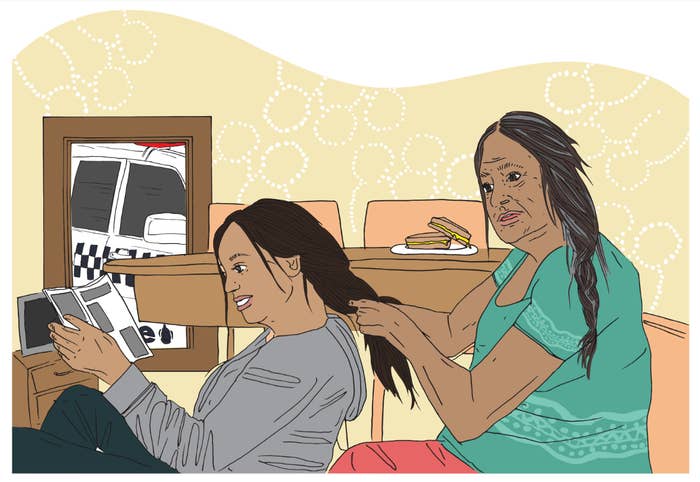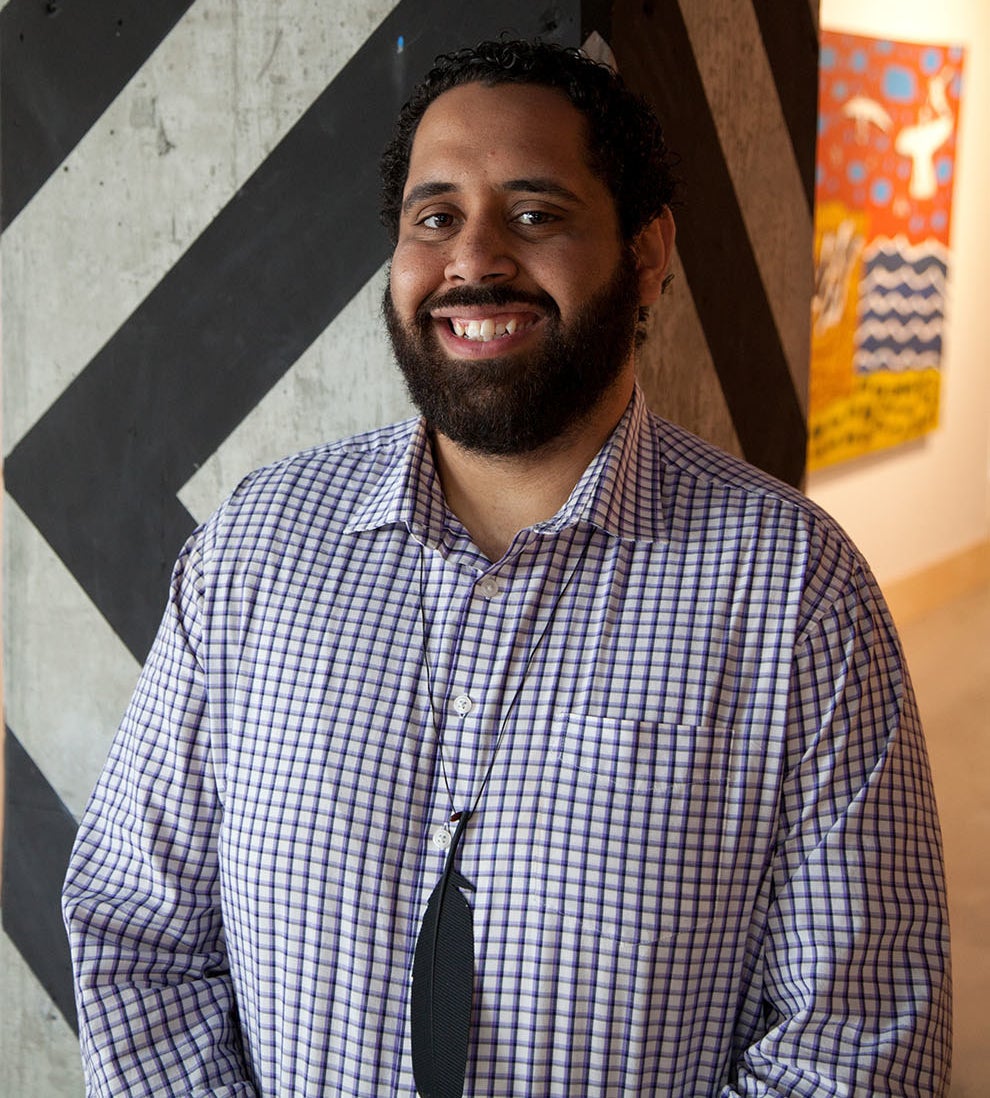The Koorie Youth Council (KYC), a representative body for Aboriginal and Torres Strait Islander people in Victoria, has interviewed more than 40 children and young people about their experiences while under youth justice supervision.
The young people had interacted with the justice system in a range of different ways, including incarceration, appearing in court, being under community supervision and receiving cautions from the police.
Their stories are included in a report released on Wednesday called “Ngaga-Dji”, which means “hear me”.
To protect their privacy the names of the children have been changed and composite accounts have been created from real events and experiences, which the KYC says reflects the real lives of many Aboriginal children.
This is the story of Binak.

Binak was living with her nan and cousins when the Department of Health and Human Services removed her from the home.
“They said stuff about nan drinking, me stopping school, too many people in our house,” she said.
She told them she didn't want to go; they told her she'd be better off away from her family.
“They got it backwards; family was the one thing holding me together. Being taken from nan and seeing the little ones separated was like watching bits of me being broken off and scattered across town.”
Binak was placed in residential care, where she lived with other kids who had been removed from their homes. “Resi is not a home. It’s a house where they take all the kids doing bad shit and the kids who’ve had bad shit done to them, and stick ‘em together like fire with fire.”
She missed her nan and family, so she would sneak back home when she could.
“I got warrants out on me for seeing nan. Cops would storm through the house and take me back to the resi unit.”
When she was caught riding stolen bikes with other kids from residential care, Binak was arrested and kept in a cell overnight.
“Cops said I couldn’t have a blanket or see a doctor about my pain. They told me I’d never see my family again, that I was going to juvie.”
The next day she found herself in Koori Court — a more informal type of court for Indigenous defendants.
There, she says, she was surprised. The Elders asked her to speak, and listened when she spoke about her experiences at home, with her nan, at school and in residential care.
“An Uncle at Koori Court told me that my family and culture are healing, that nan and me have lots going on and need support so I can get to school, out of trouble and nan can have a break," she said.
"Family supports help me, nan and the little ones. They lift the burdens and give me time to find out who I am, stand up for myself, get into TAFE and learn culture.”

Based on these stories, the KYC report is now advocating for the Victorian government and opposition to embrace new systems like the Koori Court that understand Aboriginal communities, and incorporate the principles of self-determination, youth participation, and respect for culture, family, Elders and communities.
Changes recommended by the report include raising the age of leaving out-of-home care to be raised to at least 21, raising the age of criminal responsibility to at least 14 and ending the imprisonment of children.
Youth justice has been hotly debated in Victoria in recent years.
Earlier this month, the Victorian auditor-general found that the youth justice system was not effectively working to reduce re-offending and offered inadequate rehabilitation services.
In April premier Daniel Andrews announced his government would fund 42 "youth specialist officers" who will target youth offending.
In 2016 and 2017, the government's transfer of juvenile prisoners to an adult, maximum security prison following riots in a youth justice centre was held to be unlawful by the Supreme Court.
